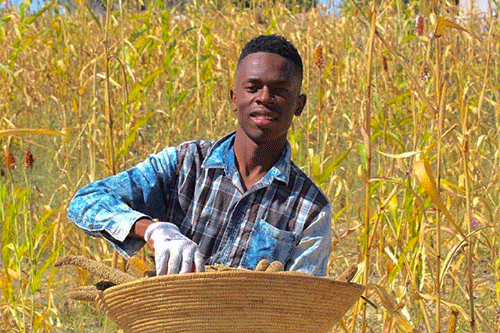A report on African fossil fuels states that 782 fossil fuel projects are in operation or under construction in sub-Saharan Africa, with a further 111 projects proposed or permitted. These developments risk locking African countries into fossil fuel dependency and further preventing them from making a timely leap to renewable energy, despite the huge potential of African nations.
The Banktrack report titled ‘Locked out a Just Transition: Fossil Fuel Financing in Africa”, released in March, states that between 2016 and 2021, financial institutions poured at least US$132.3 billion into fossil fuel companies and projects in Africa.
BankTrack is an international organisation tracking the activities of commercial banks and the projects they finance.
The fossil fuel industry continues to market new fossil fuel extraction as an important driver of development.
However, poor contract terms, debt traps and disproportionate ownership by foreign multinationals means the industry mainly serves the interests of companies and nations outside of Africa, with African people and governments bearing the risk.
A fracking expert, Andy Gheorghiu, said Namibia has a vast potential for renewable energy production.
He said oil and gas plans are preventing countries like Namibia from moving towards an energy future that could position the country as a major energy producer for the whole world in the 21st century.
On top of holding the country back, oil and gas exploring activities are also strewn with irregularities and shortcomings.
Canadian company ReconAfrica’s 2019 environmental impact assessment failed to include a list of interested and affected parties. Many community members only heard about the approved project through the media, and state that the junior oil and gas company avoided discussing the potential impact and risk. These fossil fuel projects often have direct severe impacts on local communities and the environment, leading to displacement, loss of access to land and water, and consequently loss of food security.
Environmental activist Reinhold Mungundu said the current situation with ReconAfrica in Namibia is typical of some junior extractive companies, whose insiders make money by hyping a stock and selling their shares when the price is high.
“Their financial architecture is seemingly dependent on their capacity to sell narratives of the oil they might find in future,” he added.
Mangundu is a community development planner, researcher, conservationist and environmental activist. He is the chairperson of the Namibian Environment and Wildlife Society, an activist with Fridays for the Future, and the strategic and partnership officer of the Namibian Youth Coalition on Climate Change.
He observed that this situation has led to lawsuits against ReconAfrica for allegedly scamming investors, who pumped money into their company. Last year, American investor Eric Muller filed a class action lawsuit against ReconAfrica executives and associates, alleging violations of federal securities laws.
“They are accused of spreading false or misleading information to pump up the price of their stock, and later dump shares of the stock by selling their own shares at an inflated price,” added Mungundu.
The Banktrack report warns that “banks should avoid financing ReconAfrica or any activities connected with oil and gas drilling in the Kavango Basin, and regulators should investigate the company for potential fraud.”
Mungundu further explained that the pursuit of oil and gas in the Kavango East region has little to no benefits for Namibian citizens.
“To date, only odd jobs have been available for Namibians – some locals have been temporarily employed to clear land in order to make provision for infrastructure such as roads and drilling rigs, whilst others have been given driving and security jobs,” he continued.
Mungundu said oil and gas exploration will leave toxic pollutants in the underground water courses, which would accumulate to the inland Okavango Delta that is home to a diverse biodiversity and significant to the Namibian economy through tourism.
Approached for comment last week, Ndapewoshali Shapwanale, a spokesperson for ReconAfrica, said “ReconAfrica has been working closely and collaboratively with the government of the Republic of Namibia, traditional authorities and communities of Namibia since 2019, following the acquisition of a petroleum exploration licence for the Kavango Sedimentary Basin. The company has been continuously engaging these stakeholders, and has completed two environmental impact assessments (one for our drilling programme and one for our seismic data-gathering programme). To date, Namibian-run Reconnaissance Energy Namibia has hired and employed more than 500 Namibians on short-term and long-term basis – in line with the different project stages. Along the way, we are near the completion of a social investment initiative to drill and donate 22 solar-powered water wells in our Namibian licence area, which will provide safe water for communities and reduce the risk of human-wildlife conflict around the Kavango river as well as shortening the distances women and children have to walk to collect water.
ReconAfrica has ongoing environmental, social and governance initiatives in progress as our project moves forward.”
She said “should our exploration programme result in a crude oil production venture, many more long-term jobs will be created, environmental protection programmes will be funded and wildlife conservation goals will be supported. ReconAfrica is hopeful that it will discover a new source of wealth and prosperity for Namibia.”
Terence Mukasa is a freelance journalist.



